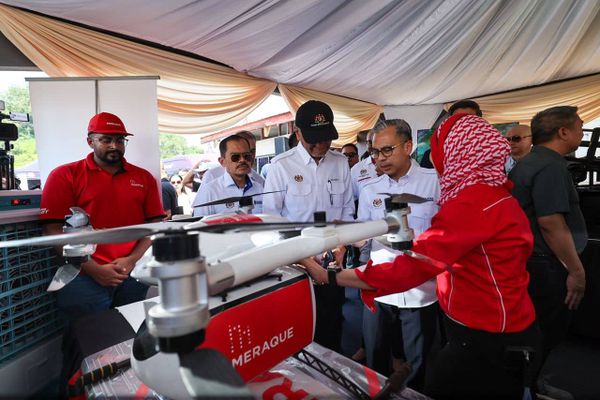PAPAR, July 23 — The Communications Ministry, through the Malaysian Communications and Multimedia Commission (MCMC), is collaborating with the Health Ministry (MOH) to provide e-health services at National Information Dissemination Centres (NaDIs), especially in over 700 rural areas.
Communications Minister Datuk Fahmi Fadzil said the MCMC and MOH are exploring several digital health initiatives, including telehealth services and the use of drone technology to deliver medications from selected NaDIs to nearby health clinics, depending on location suitability.
“This collaboration has begun here, and we aim to expand it to all NaDI centres across the country. Our goal is to provide telehealth services to help ease the burden on people living in remote areas.
“With high-speed internet available at NaDIs, these e-health services can be delivered efficiently through the NaDI-health clinic network. This will allow patients to undergo health screenings without physically visiting the clinics,” Fahmi told reporters after attending the Community Engagement Day at NaDI Kampung Langkuas Kinarut near here today, which was also attended by Health Minister Datuk Seri Dr Dzulkefly Ahmad.
Also present were Communications Ministry secretary-general Datuk Mohamad Fauzi Md Isa and MOH secretary-general Datuk Seri Suriani Ahmad.
Fahmi noted that the use of drone technology for medication delivery to rural health clinics is still in its pilot phase.
“A few months ago, Prime Minister (Datuk Seri Anwar Ibrahim) witnessed a drone-based medicine delivery demonstration at a NaDI in Tawau.
“We will hold discussions to map out the connectivity between NaDIs and health clinics. This process may be complex as it involves coordination with multiple agencies, especially concerning drone operations,” he said.
Fahmi stressed that internet speed is key to the success of the initiative, with close cooperation between his ministry, the MCMC, and the MOH.
“Some NaDIs still operate at 100Mbps, while others have reached up to 1Gbps. We aim to improve these speeds. Also, there must be joint training sessions between MOH and NaDI managers to ensure the effective delivery of telehealth services,” he noted.
Fahmi added that the initial focus would be in rural areas, where the impact of such services would be most significant, especially in Sabah and Sarawak, with further discussions to determine which NaDIs and clinics would be included.
Meanwhile, Dr Dzulkefly expressed support for the initiative, saying it would enhance access to healthcare in rural communities through selected NaDIs.
“This collaboration will bring healthcare services closer to the people. It is a timely move, as community centres like NaDI can also provide health-related services such as managing communicable and chronic diseases in these areas.
“Patients will no longer need to visit health clinics to access basic healthcare, as they can do so directly through telehealth services available at their local NaDIs,” Dr Dzulkefly said.
— Bernama


